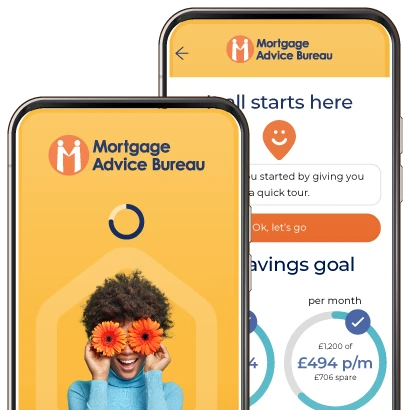 Written by: Danny Belton - Head of Lending
Written by: Danny Belton - Head of Lending
Getting a mortgage is a big financial decision, and to make sure you’re not stretching your budget to make it happen, lenders will assess your mortgage affordability. To do this, they’ll check your income, expenses, and overall financial stability.
Let’s break down the mortgage affordability process so you know what to expect, how to prepare, and how to improve your chances of approval.
In this article:
What is a mortgage affordability check
Proving self-employed incomings
Affordability and stress-testing your finances
How do I increase my mortgage affordability
What happens if my mortgage is declined?
What information do I need to calculate mortgage affordability
What is a mortgage affordability check?
To calculate your mortgage affordability, lenders will check your gross salary before tax, your net salary after taxes, and your monthly outgoings.
Since borrowing money is a risk for both you and the lender, they want to make sure that you can afford repaying the amount you want to borrow. Affordability checks will be the same whether you’re making a joint or solo application, with incomings and outgoings required for both applicants.
You can test your affordability right now using our mortgage affordability calculator, so if you’re looking at how much you can afford on your mortgage, you’re in the right place. Check it out below:
What are your incomings?
Your income before and after tax will make up your incomings, but lenders will take into account any bonuses and overtime as part of this. To prove this, you’ll need to provide proof of income. If you’re an employee, this usually means copies of your last three payslips, your most recent P60, and copies of your last three bank statements.
If you receive any other forms of income, such as from a second job, child-support, or any benefits, you may be asked to provide proof for these as well.
Proving self-employed incomings
If you’re self-employed, you’ll usually be asked to provide two or more years of audited accounts, prepared by a qualified accountant. You’ll also need to provide SA302 forms or a tax year overview from HMRC covering the last two to three years and bank statements from the last three months for your personal and business accounts.
Whether you have full-time time employment or are self-employed, your next step will be to document and prove all your outgoings.The next step is to document all of your outgoings.
What are your outgoings?
Your outgoings might include council tax, utilities costs, childcare, insurance policies, and more. This will also include any maintenance payments for children or ex-spouses.
Ultimately, lenders want to ensure that your outgoings aren’t so high that a monthly mortgage payment would cause you financial hardship. You’ll also be asked about any credit cards, personal loans, or car finance agreements you may have, and what the outstanding balances are.
As one of our expert advisers, Kate Fuller, explains: “The amount of debt you have isn’t necessarily a concern, it’s more about how much you’re paying each month for it. So, if you have a loan that’s costing you £150 a month, or a loan of £350, the £350 payment is going to have more of an impact than the lower amount.”
If you’re not sure if you should be paying off your debt or saving for a deposit, check out the article below:
Affordability and stress-testing your finances Another key part of the affordability process is stress testing. Lenders will check that you could afford your mortgage if it were to increase or your circumstances were to change. For example, if you were to have a child or go down from two incomes to one. The methods for testing may vary between lenders.
You can test our different repayment amounts by experimenting with our mortgage repayment calculator to see what levels you could afford:
Testing customers’ ability to repay their mortgage at different rates has been particularly important over the last few years, with mortgage rates rising in line with the base rate. Though these increases have currently stopped, people who were on lower fixed-rate mortgages are now likely to pay more on their mortgage than what they initially signed up for. Stress testing prepares you for both expected and unexpected changes to your financial situation, which is why it’s still an important part of the approval process.
How do I increase my mortgage affordability?
There are a range of steps you can take to improve your mortgage affordability. These include improving your credit score, adding another applicant, reducing your monthly debt payments, saving up for a bigger deposit, and even using family to help boost your credibility by acting as mortgage guarantors.
Affordability isn’t an exact science, and though your income plays a role, there’s plenty you can do outside of that to improve your chances of being approved for a mortgage. This is also the benefit of mortgage advice, since an adviser can tailor your application to particular lenders.
Kate Fuller adds that affordability requirements can vary from lender to lender. She says, “some lenders will count pension deductions, some won’t. Some will factor in travel costs or council tax, and others won’t. We know which ones will take your financial picture under review, and we know what information you’d need to enter in. This means we can find the right deal for our customers at the right time.”
Our app could help you increase your affordability, as you can use it to track your savings, input your credit score, and get a sense of your borrowing power. The best part? It’s free and ready to download:
What happens if my mortgage is declined?
Your lender or adviser will likely tell you why your application was declined, so you can make changes and improve your chances for the next time. While a single mortgage application won’t affect your credit score, multiple applications in a short period of time can.
An adviser would be able to help you before you even get to the application stage, helping you understand if you would be approved and if not, what changes you could make to increase your chances.
What information do I need to calculate mortgage affordability
To get an accurate picture of your mortgage affordability, you’ll need to consider the property’s price, your deposit, your income, and any monthly outgoings. These are documents that you would also provide to your lender, though if you work with a mortgage adviser they’ll submit these documents on your behalf.
If you’re remortgaging and changing lenders, you’ll need to do another affordability assessment. While staying with your current lender means you don’t need to do another affordability test, you may get better options by looking at the rest of the market. This is where mortgage advice becomes even more important.
As one of our other expert advisers, Jack Gear, explains: “the right deal might not be with your current lender. It might be with someone else. And we’ll keep checking that the interest rate we’ve found is still the best for you. New deals and products are coming up all the time, which is why it’s best to start looking sooner rather than later. We say six months, because then we can get a rate secured and change it later down the line if something better comes up.”
Talk to us about your mortgage affordability
Not only can we help you work out your mortgage affordability, giving you an idea of what you could borrow, we can also help you to secure a mortgage in principle. We do this through helping you apply for a mortgage, all while providing tailored advice unique to your circumstances.
Our goal is to help you through the entire process, whether you’re ready for a mortgage or not. If you have questions about your deposit, credit score, debt, or even how it all comes together to make up your mortgage affordability, talk to us:
Frequently asked questions
Affordability isn’t necessarily scored, it’s a more holistic approach to your ability to get a mortgage. Lenders will assess it differently across the board, but the higher your income, deposit, and credit the better, especially if your monthly outgoings and debt are lower.
Mortgage affordability assessments happen as a once off, but if you’re approved for a mortgage, this approval will last for 3-6 months. If you’re declined for a mortgage, and improve your financial situation, you’ll be able to do another assessment.
Having the stability of full-time employment can make it easier, but that doesn’t mean you can’t get a mortgage if you’re self-employed. Lenders like stability, and that’s the important thing to prove. If you’re self-employed, you just need to show signs of a stable income.
Lenders will look at your income, outgoings, debt, and credit history as part of your affordability assessment. Different lenders will have different requirements, so it’s worth speaking to an adviser who will know which lenders will suit you best.
Your borrowing power is calculated using your income and a multiplier of anywhere between 4 to 5, though some lenders will go lower and some higher. So if you earn £30,000 per year after tax and your lender says you can borrow 4.5x your salary, you could borrow up to £135,000.
Important information
Your home may be repossessed if you do not keep up repayments on your mortgage.
There may be a fee for mortgage advice. The actual amount you pay will depend on your circumstances. The fee is up to 1% but a typical fee is 0.3% of the amount borrowed.
Related Articles
What is a mortgage guarantor?
Being a mortgage guarantor is an excellent way to help someone who might otherwise struggle to get approved for a mortgage.
What is a fixed mortgage deal?
Choosing how long to fix your mortgage for depends on a range of factors. Here's your quick guide to deciding on the right mortgage deal for your circumstances.
Does gambling affect a mortgage application?
Understand how gambling could impact your chances of getting a mortgage.
No posts currently available







